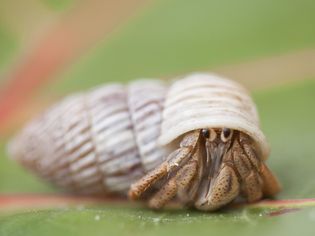
Tailoring Exercise Plans for Overweight Cats
Obesity affects up to 60% of domestic cats, predisposing them to diabetes, arthritis, and ...
Hedgehogs are unique pets that have unique health issues like wobbly hedgehog syndrome (WHS). Owners of both European and African hedgehogs should be aware of the symptoms of this degenerative neurological disease, including muscle weakness, difficulty moving, and paralysis. Hedgehogs may live up to two years after the onset of symptoms, but the disease is ultimately fatal.
Wobbly hedgehog syndrome, also known as demyelinating paralysis, is a progressive disease that affects about one out of ten hedgehogs. It, unfortunately, leads to eventual paralysis and death due to the effects it has on the brain. It is classified as a neurological disease and affects the cerebrum, cerebellum, brain stem, and spinal cord of a hedgehog.
Wobbly hedgehog syndrome is named for the characteristic wobble that hedgehogs often display with this disease, even when they are standing still. Muscle weakness and a host of other neurological signs may occur as a result of changes in the brain and spinal cord, but there are other signs you may notice in your pet.
Behavioral changes, such as aggression, may accompany neurological degeneration. A hedgehog may lose its appetite, have difficulty swallowing food and water, retain stool and urine, and drop weight. These are all signs of its system breaking down. Paralysis is likely WHS progresses, and death is inevitable.
Unfortunately, no one knows what causes wobbly hedgehog syndrome, but there are some speculations, including:
Most hedgehogs with wobbly hedgehog syndrome are diagnosed based on their symptoms while they are alive. Blood tests to look at the kidney, liver, and bladder health, as well as x-rays, are commonly performed to see if other diseases are also present, but there is no test to specifically identify WHS.
Once a hedgehog passes away, a necropsy can be performed to know for sure whether it had WHS. A biopsy of the brain tissue can be analyzed and special stains can be used to look for the lesions that wobbly hedgehog syndrome causes.
Wobbly hedgehog syndrome has no effective treatment options, so supportive care is all that can be offered to a hedgehog with this disease. Ensuring the hedgehog can access its food and water and stay clean is of utmost importance to its quality of life. Once a hedgehog has degenerated significantly, euthanasia will be recommended.
Unfortunately, wobbly hedgehog syndrome is fatal. Hedgehogs diagnosed with WHS typically live less than two years after the first signs of the disease are noted and are usually less than two years of age when the symptoms begin.
If a hedgehog shows signs of WHS, it should not be bred. Since the most likely cause of this fatal disease is genetics, ensuring a hedgehog with WHS does not pass on these genes is the best way to prevent the disease from occurring in its offspring.

Obesity affects up to 60% of domestic cats, predisposing them to diabetes, arthritis, and ...

IntroductionCats are renowned for their lengthy sleep periods, often snoozing 12–16 hour...

IntroductionCommon household cleaners contain chemicals that can irritate your pet’s ski...

Why Routine Vet Visits Are Non-Negotiable for Pet HealthRegular veterinary examinations fo...

Play is far more than simple amusement for pets—it’s a biological imperative critical ...

Pet Safety: How to Pet-Proof Your Home for Every SeasonCreating a truly pet-safe home requ...

Essential Tips for First-Time Pet Owners: A Comprehensive GuideBringing home your first pe...

Before getting a pet hermit crab, you might ask yourself, “What do hermit crabs eat?”...

Female guinea pigs have a uterus, like every other female mammal, that hasn't been surgic...
Comments on "Wobbly Hedgehog Syndrome (WHS)" :